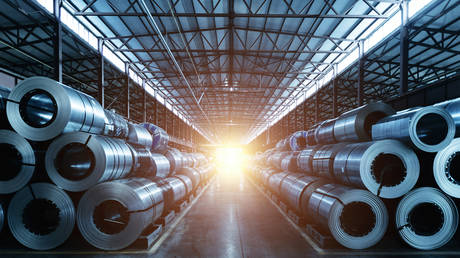
EU reveals impact of its sanctions on Russia trade
Imports into the bloc from the sanctioned country have fallen nearly fivefold, Eurostat data shows
Imports from Russia into the European Union have fallen nearly fivefold since the imposition of Ukraine-related restrictions on Moscow last year, the bloc’s statistics agency has revealed.
According to Eurostat’s latest figures, seasonally adjusted values show that Russia’s share in EU imports from outside of the bloc fell from 9.5% in February 2022 to 2% in September 2023. The share of exports from the bloc to Russia also fell in the same period, from 3.8% to 1.4%.
The highest trade deficit with Russia was recorded in March 2022 and amounted to €18.6 billion, due to the high prices of energy products, Eurostat writes, adding, however, that the deficit has since been significantly reduced. The trade deficit is the amount by which the value of a country’s imports exceeds the value of its exports.
Natural gas, petroleum oils, nickel, iron and steel as well as fertilizers accounted for around two-thirds of the EU’s total imports from the sanctioned country. While Russia’s share in the imports of those products “decreased significantly,” the bloc increased purchases of natural gas and petroleum oils from the US, Norway, Algeria, and Saudi Arabia. The US expanded its share in the supply of nickel, and China emerged as the primary supplier of iron and steel.
Fertilizers, however, followed a different pattern, Eurostat notes. Russia’s share in extra-EU imports dropped by nearly a third in 2022 but bounced back to its pre-sanctions level of 27% in July-September of this year.
Read more
EU states divided on Russia sanctions – Bloomberg
The EU has imposed 11 rounds of sanctions on Russia since early 2022, when simmering post-2014 tensions between Moscow and Kiev turned to military engagement. The bloc aims to weaken Russia’s economy by depriving it of access to critical technologies and markets, and by curtailing its income from exports of raw materials. In response, Russia has redirected much of its trade to Asia, primarily India and China.
According to the Eurostat, EU trade with Russia has been strongly affected by the import and export restrictions.
For more stories on economy & finance visit RT’s business section


